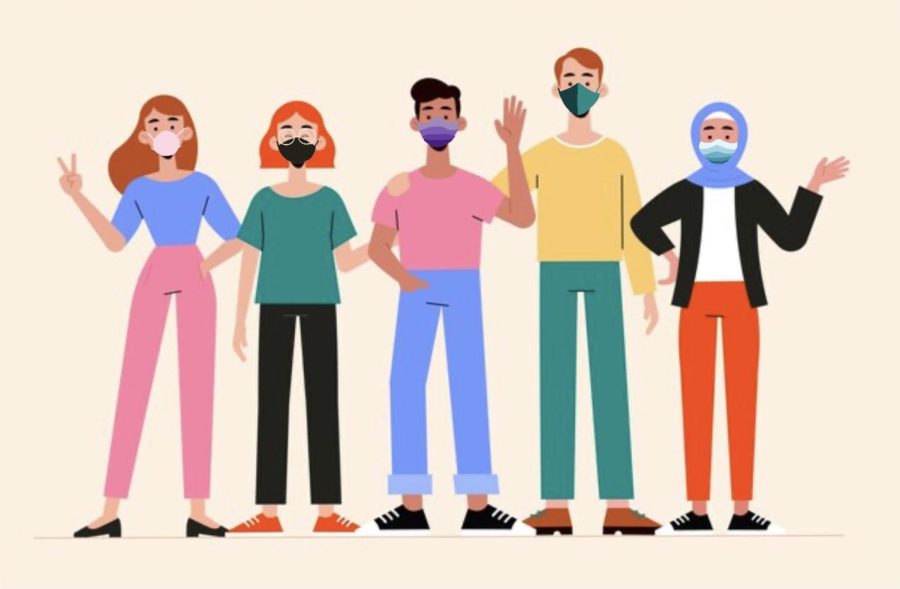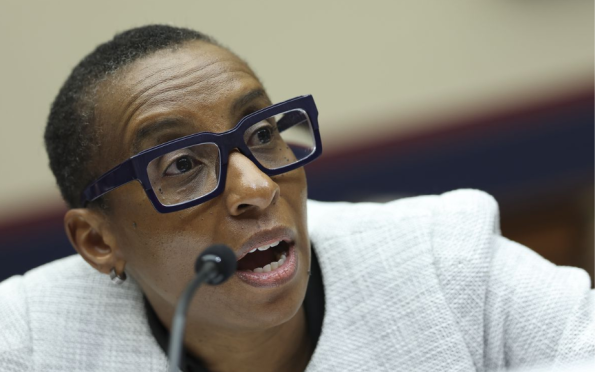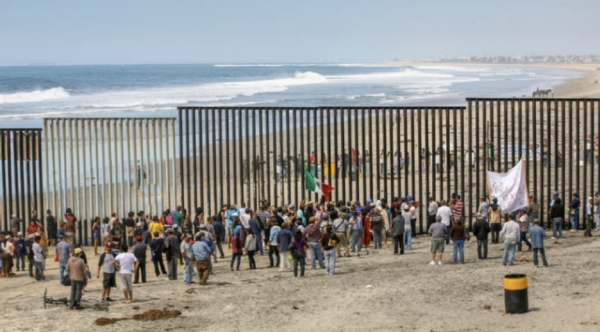Masks as the New Normal
The mask mandate has been up since April 2020, but as the pandemic goes on, some are starting to come down. This does not mean mask-wearing is over. Many will continue to wear masks out of concerns over their health and in solidarity and respect.
February 19, 2022
Ever since March of 2019, masks have become an essential part of our lives: going shopping, meeting up with friends, riding the bus. While many have accepted masks as our new normal, many others oppose the use of masks, saying that it restricts their freedom or that it makes it hard to breathe. However, as the pandemic’s effects have revealed that masks’ pros far outweigh their cons, it is necessary to normalize masks in our society and our future.
The wearing of face masks was first recommended by the CDC in April 2020, a month after the global shutdown of schools. As of February 11, nine states–California, Delaware, Hawaii, Illinois, Nevada, New Mexico, New York, Oregon, Washington–had a mask mandate for indoor public places regardless of vaccination status. However, California and other states relaxed Covid restrictions and lift the mandate on February 15. In the wake of the more transmissible Omicron variant, many believe that it is too soon to get rid of our masks for our own comfort at the expense of exacerbating the spread.
Masks have become a point of polarization in American society between pro-maskers and anti-maskers, spawning social media wars, legislative battles, and even physical conflicts. While political polarization in America has caused masks to be a point of contention, masks offer clear benefits that will continue to last during Covid-19 and even after it.
According to the CDC, 24,000 people died due to influenza during the 2019-2020 season, while less than a thousand died during 2020-2021.
First, masks are effective at preventing the spread of many respiratory illnesses. In countries like China, Taiwan, and Singapore, mask-wearing became common after the SARS outbreak of 2002. While SARS might not be as common in local communities, masks like the N95 and the KF94 can prevent the spread of other respiratory illnesses like colds, the flu, and even seasonal allergies. According to the CDC, 24,000 people died due to influenza during the 2019-2020 season, while less than a thousand died during 2020-2021. Keeping a mask up has helped throughout the twindemic of flu and Covid and will help offer protection against respiratory viruses in the future as well.
Second, masks are highly effective against air pollution and the various airborne infections that come with it. In places with high levels of air pollution, masks with multiple filters can help people breathe clean air. Ambient air pollution, associated with the gas from factories and the tailpipes of motorized land vehicles, contains chemicals that can lead to serious illnesses spanning from asthma to lung cancer. However, the use of masks like the N95 and KN95 offer protection against the minuscule particles that instigate such diseases. According to a study in 2016, even surgical masks can block up to 15-30% of harmful particles.
Helene-Mari van der Westhuizen, a Ph.D. researcher at the University of Oxford, points out that while the first few people to mask may have been seen as deviant, the social norm has shifted so that the moral valence of masking displays social responsibility.
Finally, the mask is a symbolic representation of solidarity and can improve relations all across the world. Despite being portrayed as a weapon for polarization in the U.S, countries in East Asia and Europe see mask-wearing as a way to protect others. Helene-Mari van der Westhuizen, a Ph.D. researcher at the University of Oxford, points out that while the first few people to mask may have been seen as deviant, the social norm has shifted so that the moral valence of masking displays social responsibility. The assumption that healthy people are trying to protect others builds a sense of collective responsibility and community.
In a world full of disease and division, the use of face masks can be used as a tool to prevent the spread of viral infection and show mutual respect and responsibility. This is not to say that masks should be mandated even after the Covid-19 pandemic. Nevertheless, the various benefits of masks should be considered as masks after the pandemic become more normalized.











